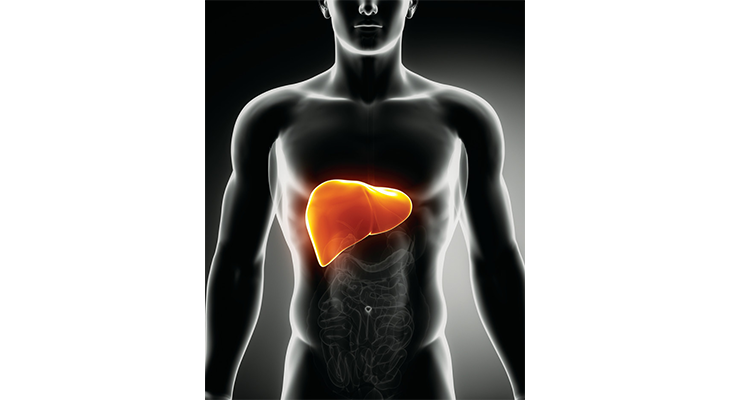Curcumin shows promise against non-alcoholic fatty liver disease in animal study
In the rat study, researchers found that curcumin reduced hepatocellular inflammation, among other health benefits.
Photo © iStockphoto.com/janulla

Curcumin shows potential for the prevention and treatment of non-alcoholic fatty liver disease (NAFLD), according to new research published in Physiological Reports.1 In the rat study, researchers found that curcumin reduced hepatocellular inflammation, among other health benefits.
Researchers randomized 48 rats to four groups fed ad libitum: 1) a Western diet (which was high in fat, sucrose, cholesterol) for eight weeks, 2) the Western diet enriched with added curcumin for eight weeks (to assess prevention), 3) the Western diet for 12 weeks, and 4) the Western diet for eight weeks followed by four weeks of Western diet enriched with curcumin (to assess treatment).
The specific curcumin extract used was BCM-95 distributed by DolCas Biotech LLC (Landing, NJ), which is a full complement of pure curcuminoids and essential oils from turmeric, with a specific content of turmerones to ensure high free-curcumin bioavailability.
Results showed prevention and treatment groups both had significantly lower NAFLD Activity Scores compared to the groups consuming a Western diet alone as well as significantly lower hepatocellular inflammation. The treatment group showed significantly less mRNA expression of certain inflammatory cytokines and had significantly less hepatic steatosis (buildup of fat in the liver). As an antioxidant, curcumin also improved some markers of oxidative stress such as increasing glutathione in the prevention group.
“A nearly two-point reduction in the NAFLD Activity Score (NAS) is quite significant for a plant-based ingredient like BCM-95,” noted Shavon Jackson-Michel, ND, director of medical and scientific affairs at DolCas Biotech, in a press release. “This is especially significant since there are few conventional treatments for NAFLD, a dysfunction believed to affect some 30% percent of the population.”
The researchers also noted that curcumin had an effect on fibroblast growth-factor 21 (FGF-21), which recently emerged as a plasma marker for NAFLD development. The prevention group demonstrated significantly lower levels of FGF-21 signaling protein beta-klotho in the liver compared to control, though no significant changes in hepatic FGF-21 protein. The treatment group on the other hand did have significantly less hepatic FGF-21 protein compared to control.
Researchers say this is one potential mechanism by which curcumin benefits the liver, besides as an antioxidant. “Here, we show that 12 weeks of [Western diet] caused significant elevations in FGF-21 levels, indicative of FGF-21 resistance, whereas curcumin treatment attenuated this increase,” write Cunningham et al. “This suggests that curcumin may help reverse FGF-21 resistance, a finding supported by others.”
References:
- Cunningham RP et al. “Curcumin supplementation mitigates NASH development and progression in female Wistar rats.” Physiological Reports, vol. 6, no. 14 (2018).







